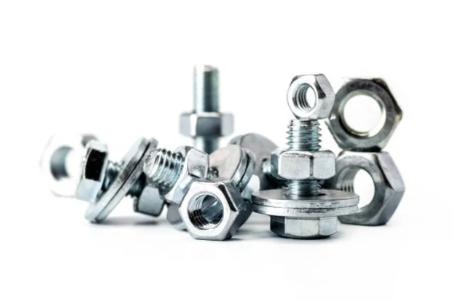How To Maintain Fasteners Such As Screws And Nuts?
Maintaining fasteners like screws, nuts, bolts, and washers is crucial for the longevity and reliability of mechanical connections. Proper maintenance ensures that these components can be easily removed or adjusted when needed and do not fail under operational stresses. Here are some general tips and best practices for maintaining these fasteners:

Regular Inspection
Check for signs of wear and tear: Regularly inspect fasteners for any signs of corrosion, stripping, or damage. Early detection of issues can prevent failure.
Monitor for loosening: Vibration and thermal cycling can cause fasteners to loosen over time. Periodic checks can help identify and retighten any that have become loose.
Cleanliness
Keep fasteners clean: Dirt, grime, and rust can compromise the integrity of fasteners. Cleaning them with appropriate solvents or a wire brush can prevent corrosion and ensure they function properly.
Protect threads: Use thread protectors or caps when fasteners are not in use or during transportation to prevent damage.
Lubrication
Apply lubricants: Lubricating the threads and under the head of bolts can prevent seizing and galling, making them easier to remove in the future. Use a suitable lubricant like anti-seize compounds for high-temperature applications or environments prone to corrosion.
Choose the correct lubricant: Ensure the lubricant is compatible with the materials of both the fastener and the components it secures to avoid chemical reactions that could lead to corrosion.
Correct Installation
Use the right tools: Always use the correct size and type of tools for installation to avoid damaging the fasteners.
Follow torque specifications: Over-tightening can cause stress and fatigue, leading to failure. Use a torque wrench and adhere to the manufacturer’s torque specifications.
Use washers: Where applicable, use washers to distribute the load and prevent damage to the secured material.
Corrosion Prevention
Apply coatings: Fasteners made from corrosion-prone materials can be coated with zinc, cadmium, or other protective coatings to extend their life.
Choose appropriate materials: In environments prone to corrosion (e.g., marine or highly acidic environments), select fasteners made from corrosion-resistant materials such as stainless steel, brass, or coated alloys.
Storage
Store properly: Keep unused fasteners in a dry, clean, and organized environment to prevent corrosion and damage.
Control environment: Use dehumidifiers or keep fasteners in sealed containers with desiccants to control moisture.
Replacement
Know when to replace: If a fastener shows significant wear, corrosion, or damage, it’s safer to replace it rather than attempt a repair.
Upgrade if necessary: Consider upgrading to higher-grade or more corrosion-resistant fasteners if failures occur frequently.
Record Keeping
Maintain records: Keeping records of maintenance, replacements, and inspections can help predict future needs and identify recurring issues.
By following these maintenance practices, you can significantly extend the life of fasteners, ensure the safety and reliability of mechanical connections, and reduce the risk of unexpected failures.
Xinchi Fastener Company is a trustworthy fastener company, especially in furniture nuts. We have a factory, which was founded in 2007(Factory Video). And we are the designated fastener supplier to“STAPLE”. As a trusted fastener supplier, Xinchi Fastener Company can offer a wide range of high-quality fasteners, including T nuts, screws, bolts, rivets, washers, etc. If you want to know more about fasteners or want to wholesale fasteners, please feel free to contact us. And then our experienced and expert service team will reply to you as soon as possible.

